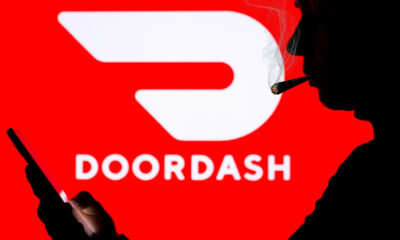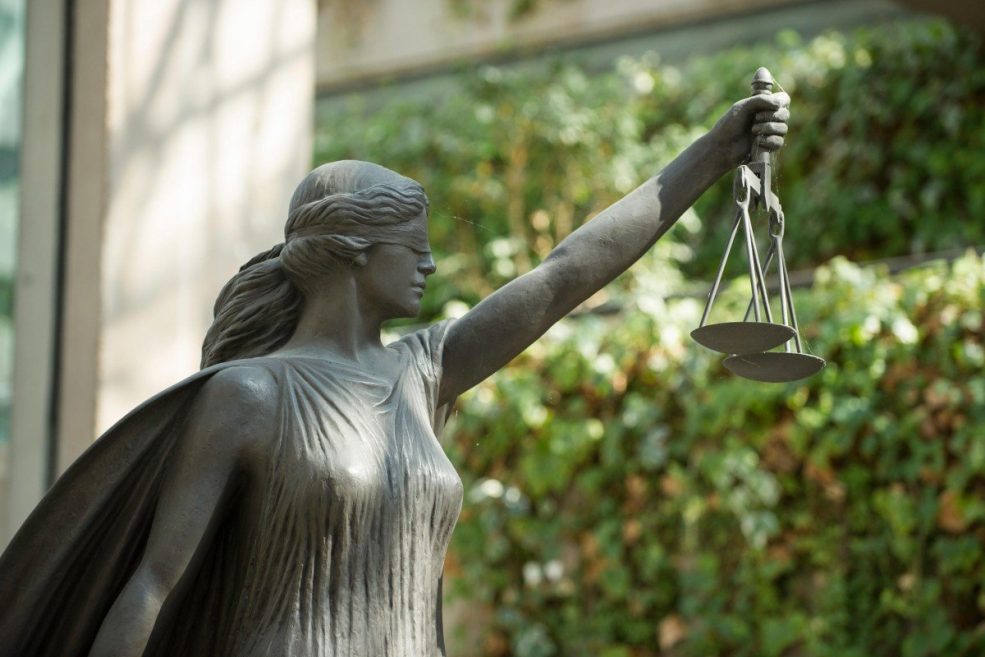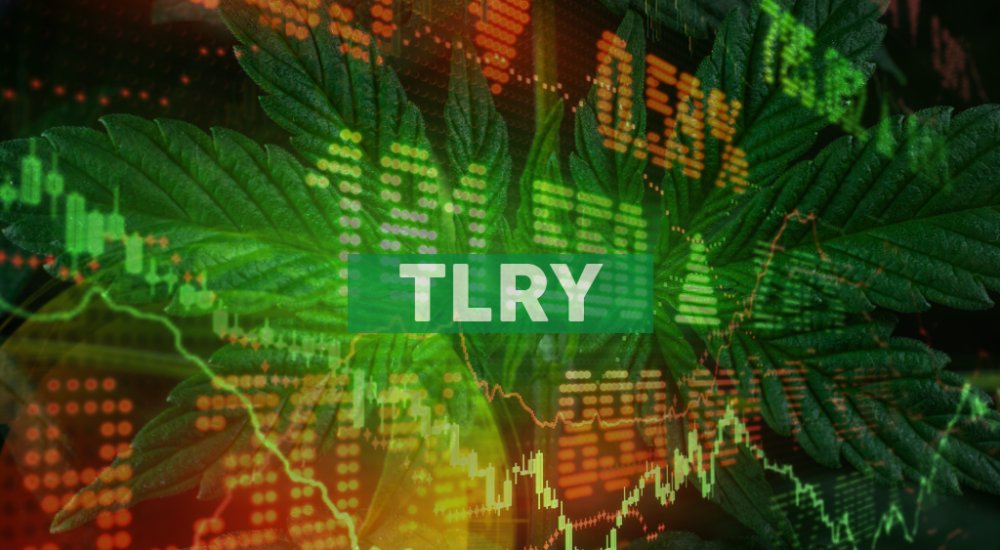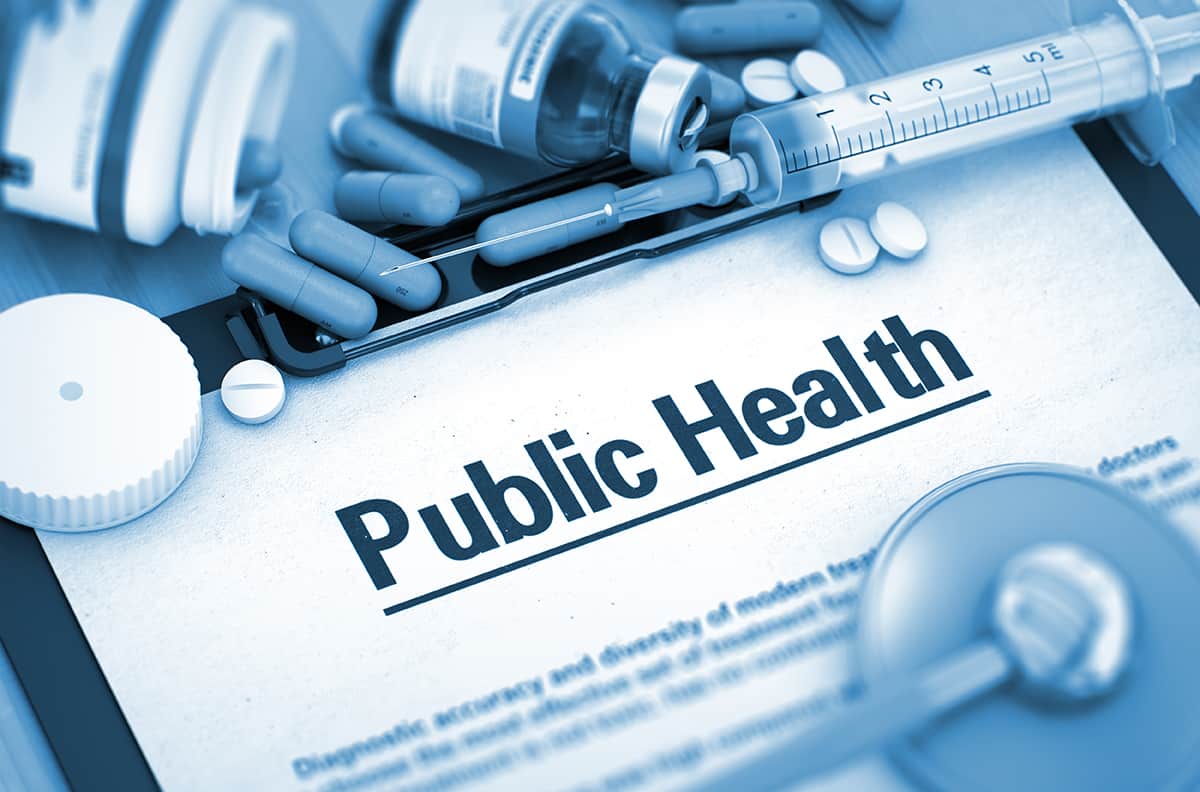Cannabis Canada
Freedom Convoy Trial (And Cannabis Lessons) – Cannabis | Weed | Marijuana
Published
2 years agoon
By
admin
Tamara Lich and Chris Barber, the crowned “leaders” of the Freedom Convoy, begin their trial this week. The rationale is mischief, but the reality is that the Freedom Convoy is guilty of gaining traction despite not meeting the approval of our wise overlords.
Had the Freedom Convoy been about abortion rights or supporting anti-capitalist “green” policies, today’s situation would be very different.
Justin Trudeau would be taking selfies with Tamara Lich, calling her a modern-day post-national Canadian hero.
But alas, the Freedom Convoy stood against covid restrictions like lockdowns and domestic passports. And so, despite the number of women and visible minorities who were part of the movement, the corporate press refers to Freedom Convoy supporters as “racists” and “misogynists.”
Because the Freedom Convoy protested “public health” instead of supporting Black Lives Matter, the Trudeau government invoked the Emergencies Act.
This leaves many of Canada’s cannabis connoisseurs wondering: Are we next?
It’s no secret the public health establishment loathes cannabis, especially “unregulated” and “illicit” cannabis. In many places, 4/20 protests have morphed into farmer’s markets.
The trial of Tamara Lich and Chris Barber (and the corporate press narrative of the Freedom Convoy) are the canaries in the coal mine.
For example, the Canadian government legalized cannabis in 2018. You can buy it in a store like you would alcohol. Therefore, the annual 4/20 farmer’s market is an illegal occupation involving trafficking.
But is this a far-fetched comparison or a glimpse of things to come?
Reality vs. Propaganda
The Freedom Convoy involved a lot of people. While Tamara Lich is the media’s scapegoat, the demonstration was only successful with everyone’s involvement.
From regular Joe’s opposed to anti-liberal “public health” restrictions to the more eccentric type that believes Justin Trudeau is taking orders from lizard people living inside a hollow moon.
What the Freedom Convoy wasn’t was an insurrection. It wasn’t even violent. Left-wing climate protests get more violent than what went down in Ottawa in early 2022.
During the public inquiry, we learned that both the Ontario Provincial Police and the Canadian Security Intelligence Service did not believe the Convoy was a threat to national security or that it posed a threat.
But to have suggested this when the demonstration was happening was akin to “carrying water for fascists.”
Like left-wing anti-capitalist protests, the Freedom Convoy suffered from internal politics and incoherent messaging.
Justin Trudeau’s Liberals wanted the Convoy to be Canada’s version of January 6th. The problem, of course, is that the narrative of January 6th is blatant propaganda.
(In fact, if you think January 6th was a big deal, but you know little to nothing about the “Twitter Files,” then you are the one spreading misinformation).
Regardless, the decision to invoke the Emergencies Act, according to Justin Trudeau, was not because the Freedom Convoy was violent (they weren’t) but because they could become violent.
Justin revoked people’s civil liberties based on the possibility of a threat. And the legacy media let him get away with it. Now they’re protecting him again with their biased coverage of the Freedom Convoy trial.
Something to keep in mind next time some corporate “journalist” decries a populist politician’s “attack on the free press.”
It’s not the free press. It’s the corporate press. And they are the enemy of the people.
Freedom Convoy Trial
Tamara Lich and Chris Barber are going to trial based on the alleged crimes of mischief, obstructing police, and intimidation. They could face up to a decade in prison.
Their alleged crimes resulted from the incompetency of police and the city of Ottawa to deal with a protest they knew was coming and should have prepared for.
The protestors announced their plans on social media: cause gridlock in Ottawa until governments across the country lifted their covid restrictions.
Which is precisely what happened.
If the Freedom Convoy had been united with the intent to overthrow the Canadian state violently, they likely would have succeeded.
The lesson from the Freedom Convoy is just how incompetent the Canadian government is. It was a private citizen – not the government or police – that was able to get an injunction so the truckers wouldn’t blast their horns during all hours of the night.
The trials of Tamara Lich and Chris Barber are political show trials. This would be like if the Canadian state started tracking down and arresting cannabis connoisseurs who openly smoked and protested prohibition before legalization in 2018.
The Freedom Convoy trial isn’t about justice.
Just ask the Coutts Four, who have been denied bail and sit in solitary confinement.
The Coutts Four
While the Freedom Convoy was going in Ottawa, a similar protest occurred in Coutts, Alberta. Eventually, police arrested four men with “Conspiracy to commit murder” of RCMP officials.
The Coutts Four have been convicted of nothing. They are political prisoners. The Freedom Convoy trial is a show trial.
And there’s good reason for it.
Canada publishes annual reports, some of which include the leading cause of death in the country. For 2021, the leading cause in Alberta was “unknown.”
There is also an extensive list of young athletes developing heart and respiratory problems.
“There are now higher rates of young people with no obvious cardiac histories who are going to the emergency room with heart attacks,” says Deepak Cyril D’Souza, MD, Albert E Kent Professor of Psychiatry at Yale School of Medicine.
But D’Souza isn’t blaming the covid vaccines, which are “safe and effective.”
No, the reason for heart problems among the youth is cannabis.
“The marijuana and cannabis products that your grandparents may have used are very different from what’s out there now,” says D’Souza.
Associating the Freedom Convoy with racism, terrorism, sexism, or whatever, was more than Justin Trudeau trying to save his own ass.
There is an anti-human agenda that the Freedom Convoy opposes. It goes beyond protesting restrictions. It’s why Lich, Barber, and the Coutts Four need to be made an example of.
But more of us are waking up to the absolute corruption and depravity of the status quo.
We know why there are young people with cardiovascular problems. And we know cannabis has nothing to do with it.
You may like
-


This Wine Issue Is Becoming More Common
-


Get more for less this 420 at PurLife
-


Can You Order Cannabis through DoorDash?
-


Cannabis Enthusiast-Friendy Retreats – GanjaVacations Jamaica
-


The road ahead for cannabis lending in 2025
-


Cannara Biotech Announces Appointment of Justin Cohen to Board of Directors
All about Cannabis
B.C. Court Dismisses Cannabis Retail Lawsuit – Cannabis | Weed | Marijuana
Published
2 years agoon
September 22, 2023By
admin
A British Columbia (B.C.) court dismissed a lawsuit from owners of licensed cannabis retail shops. Last year, this group of cannabis retailers sued the province for not enforcing cannabis regulations.
While licensed cannabis retailers jump through bureaucratic hoops and pay excessive taxes on the faulty premise that this contributes to “public health and safety,” the B.C. Bud market of “illicit” retailers doesn’t face these same hurdles.
Particularly on Indigenous Reserves, where the plaintiffs claim damages of at least $40 million in lost revenue.
Justice Basran considered whether the province owed the plaintiffs a private law duty of care in this context. The plaintiffs claimed the province committed torts of negligence and negligent misrepresentation.
But what does this mean? And was Justice Basran’s dismissal of the lawsuit justified?
Details of the Plaintiff’s (Cannabis Retail) Argument
While the cannabis retailers suing the province wished to remain anonymous, CLN uncovered who they were. Their position is understandable. The government sold them a bill of goods.
When Canada legalized cannabis, the province of B.C. effectively said, “play by the rules and you’ll profit.” The reality has been anything but.
Obviously, licensed cannabis retailers are at a competitive disadvantage vis-a-vis the unlicensed cannabis shops.
So why did Justice Basran dismiss the lawsuit?
First, let’s look at what the plaintiffs claimed in their suit. What do “torts of negligence” and “negligent misrepresentation” refer to in this context?
Tort Law
Negligence is a fundamental concept in tort law. It means a failure to exercise a degree of care reasonable people would exercise in similar circumstances.
To establish a claim of negligence, the plaintiff (in this case, a group of licensed cannabis retailers) needed to prove the following:
- That the province of B.C. owed a duty of care to the licensed cannabis retailers.
- That the province breached that duty by failing to meet the standard of care expected under the circumstances (i.e. The province’s cannabis enforcement authority should have been raiding unlicensed shops more than they were)
- That the province’s breach of duty directly caused harm or damages (i.e. Causation) to the licensed cannabis retailers
- And that these actual harms (or losses) result from the province’s breach of duty.
The plaintiffs alleged that B.C. failed to enforce cannabis regulations (specifically, the Cannabis Control and Licensing Act) on Indigenous Reserves. They claimed this negligence resulted in damages of at least $40 million.
Negligent misrepresentation is a specific type of negligence claim that arises when one party provides false or misleading information to another party, and the party receiving the information relies on it (to their detriment).
To establish negligent misrepresentation, the licensed cannabis retailers had to prove the following:
- That the province made a false statement, whether intentionally or not
- That the plaintiffs relied on this false statement
- The plaintiffs suffered financial (or other) losses from relying on this false statement.
In this case, the plaintiffs said that B.C. promised them a viable, legal, above-the-board retail cannabis industry. One way of ensuring this would be to take enforcement action against unlicensed retailers, whether on Indigenous Reserves or not.
Did the B.C. Government Owe a Duty of Care to the Cannabis Retailers?
Justice Basran considered whether the province owed the plaintiffs a private law duty of care. The B.C. government argued that it did not owe such a duty because the parties had no direct relationship.
But what does this mean?
In tort law, a “duty of care” is a legal obligation imposed on an individual (or group, entity, etc.) to exercise reasonable care and caution to prevent harm to others affected by their actions and omissions.
Of course, not all actions or omissions give rise to a duty of care. That’s where proximity comes in, which refers to the direct relationship between the parties. In this case, whether a direct connection between the province’s cannabis regulators and the cannabis retailers justifies imposing a legal duty.
Justice Basran had to determine whether the province of B.C. owed a “private law duty of care” to the cannabis retailers. Of course, B.C. argued that it did not. They argued that their duty was the “public interest,” not the economic interests of specific businesses.
Justice Basran agreed that no duty of care existed due to lack of proximity.
How Did the Court Come to this Decision?
Justice Basran dismissed the B.C. cannabis retail lawsuit based on the “plain and obvious” legal standard used when deciding to strike pleadings.
The court considered the Anns/Cooper test to determine whether a duty of care existed. This involves two stages. First, whether the harm alleged was reasonably foreseeable. And second, whether there is a close relationship between the parties (proximity).
Justice Basran found no prima facie duty of care between the province and the licensed cannabis retailers. The court argued that B.C.’s cannabis regulations do not establish a legislative intention to create such a duty.
The court also ruled that the claims made by the province (i.e. Get licensed and profit) did not create a sufficient relationship to impose a duty of care.
Suppose the court had recognized that such a duty exists. Justice Basran was concerned such a decision could result in more of these types of lawsuits where the province (and its regulators) are held liable for the economic losses of numerous businesses due to their incompetence.
Justice Basran weighed the potential negative consequences of such a decision and decided it wouldn’t be in the best interests of the legal system, taxpayers, or society as a whole to impose such a duty.
B.C. Court Dismisses Cannabis Retail Lawsuit
A B.C. court has dismissed the cannabis retail lawsuit. The decisions sound as if what’s convenient for the government overrules what’s just and fair.
Was Justice Basran’s dismissal of the lawsuit justified? Judges are, after all, only human. And there is an appeals court. So, there may be more to the case in the future.
In the meantime, to argue that judges in Canada have far too much power, that they are, in effect, legislating from the margins is considered a “far-right” viewpoint.
But there is nothing “far-right” or even “far-left” about upholding the values that underpin our rule of law.
Suppose governments can evade the consequences of their actions because of the potential cost to taxpayers or the legal system. In that case, there is no rule of law.
It’s rule by fiat masquerading as a rule of law.
All about Cannabis
Is Tilray Too Dangerous? – Cannabis | Weed | Marijuana
Published
2 years agoon
September 20, 2023By
admin
“Tilray is too dangerous,” said CNBC’s “Mad Money” host Jim Cramer. “It is a spec stock that is losing money, and we don’t recommend stocks that are losing money.”
Cramer isn’t the only one shying away from the Canadian cannabis producer. Kerrisdale Capital called the company a “failing cannabis player” in a recent report.
We are short shares of Tilray Brands, a $2.4bn failing Canadian cannabis player running a familiar playbook for unsuccessful businesses trading in the public markets: given structurally unprofitable operations, the company has resorted to ongoing, shameless and massive dilution to stay alive, even as management compensates itself generously while operating metrics further deteriorate.
But is this true? Is Tilray a failing cannabis player? Is Tilray too dangerous for investors?
CNBC is not a Reputable News Organization
Of course, CNBC is not a reputable news organization. It’s corporate press, the entertainment division of the military-industrial complex.
Likewise, Jim Cramer has been wrong so many times that it’s surprising people still take him seriously.
But Kerrisdale Capital doesn’t share Cramer’s reputation. Following their report, Tilray’s shares dropped 12% to around $2.75 per share.
Of course, it’s not all Kerrisdale’s fault. The other week, Tilray requested shareholders approve raising common stock shares from 980 million to 1.208 billion.
Tilray argues that the dilution is necessary to remain flexible in response to market uncertainty. But, as indicated by declining stock prices, shareholders weren’t happy.
But is Tilray too dangerous for investors?
Among Canadian cannabis producers, Tilray stands out as the dominant player, having succeeded where others have failed. Its global presence in pharmaceuticals and craft beer industries bodes well for future cannabis distribution.
But if Tilray is diluting its share to mask its fiscal health, is the company too dangerous to invest in?
Is Tilray Too Dangerous?
Kerrisdale Capital’s report isn’t a single-page newsletter. It’s a comprehensive takedown of Tilray’s fiscal and operational health. But is it accurate? Is Tilray too dangerous for investors?
“Tilray has a dilution problem,” the report reads. It refers to Tilray’s cash payments to a partner named Double Diamond Holdings. These are “recurring cash obligations” that Tilray has been increasingly using its stock for payment.
This means Tilray is giving away ownership to fulfill its financial obligations.
Likewise, the report highlights that these payments have grown from $24 million in cash to $100 million in shares. The report suggests Tilray is undervaluing its stock when making these payments to Double Diamond Holdings.
The report also criticizes Tilray for not being transparent about these payments during their quarterly calls.
Kerrisdale Capital calls the adjusted EBITDA (Earnings Before Interest, Taxes, Depreciation, and Amortization) and free cash flow figures provided by Tilray “materially misleading.”
They criticize how these stock payments are missing from Tilray’s definition of free cash flow. The report says if you strip away “accounting gimmicks” and “other one-time benefits,” Tilray’s underlying financial performance is not improving but steadily (and significantly) deteriorating.
What About Craft Beer & USA Legalization?
Kerrisdale Capital’s report is critical of how rescheduling cannabis in the United States might benefit Tilray. It’s less of a question of “Is Tilray too dangerous,” and more of “Is this relevant to Tilray’s success?”
Or even detrimental to it?
The report suggests rescheduling cannabis to Schedule III will benefit pharmaceutical companies looking to patent cannabis-based FDA-approved drugs. There are also tax benefits for state-level operators.
But since Tilray doesn’t have significant U.S. cannabis operations, what benefit is there? Consider that rescheduling favors U.S.-based companies. It’s a net negative for a Canadian cannabis company like Tilray as it empowers its competitors with no tangible benefit to themselves (like cross-border trade).
The report also criticizes Tilray’s acquisition of brands from beer giant Anheuser-Busch InBev (ABI). Kerrisdale Capital says the acquisition lacks strategic clarity, and the lack of financial details about the purchase is a huge red flag.
And it gets worse.
According to Nielsen data, the retail sales of these acquired brands have been declining. Looking at the numbers, it appears ABI was happy to sell off its lackluster brands.
Do Investors Consider Tilray Too Dangerous?
Is Tilray too dangerous? Is the company diluting its stocks to mask its financial health and maintain operations? If you’re a Tilray fan, consider taking a second look, suggests Kerrisdale Capital’s report.
While Tilray’s rationale for acquiring ABI brands was for future distribution into the THC-infused beverage market, Kerrisdale Capital’s report questions this logic.
They argue that the brands require significant investment, marketing and distribution. Without the support of ABI, Tilray has created more work for themselves. Exploiting the distribution opportunities is not as cut-and-dry as Tilray has made it sound.
Likewise, the report expresses concern about Tilray’s valuation, even before the news about rescheduling cannabis spiked their shares.
The report points out that on the news of a potential rescheduling, Tilray’s shares were trading 36 times higher than their EBITDA and three times higher than their revenue.
But ultimately, the report is concerned about near-term dilution risk related to refinancing. It mentions the payment patterns to Double Diamond. It suggests that over $40 million in stock will be paid to the supplier ahead of the $127 million in convertible notes set to mature on October 1.
Not exactly what you want to hear if you’re a Tilray shareholder. Which brings us back to our central question: Is Jim Cramer right? Did Kerrisdale Capital hit the nail on the head?
Is Tilray too dangerous?
All about Cannabis
What is Public Health? – Cannabis | Weed | Marijuana
Published
2 years agoon
September 19, 2023By
admin
What is “public health?” Since 2020, the term has entered the mainstream, but public health was around long before covid. Canadian politicians crafted cannabis legalization with “public health” goals in mind.
Instead of the traditional argument for legal cannabis, which is that you have a right to your body.
But let’s give them the benefit of the doubt. Like most things in life, let’s apply the 80/20 rule. 80% of “public health” are hapless bureaucrats who believe they are improving the world.
The other 20% are busybody control freaks.
They have the same mentality as the Temperance Movement or the Puritans. These people want to see more restrictions on the cannabis industry because some parents can’t be bothered to keep edibles out of their children’s reach.
These people want to bring back mask mandates despite the lack of evidence of their efficacy.
(If the meta-analysis of randomized control trials came out in favour of masking, we’d never hear the end of it, but because the conclusions didn’t support the narrative, the “fact checkers” have downplayed the study’s significance).
But what is public health? If governments must curtail our fundamental rights in the name of it, then we’ll need more than some broad, ambiguous term.
There is a Public Health Agency of Canada. They say their activities “focus on preventing disease and injuries, responding to public health threats, promoting good physical and mental health, and providing information to support informed decision making.”
But how accurate is this?
What is Public Health?
Is it like a public school? There are all kinds of schools, public and private. “Public” school refers to state-controlled and taxpayer-funded education.
Public school refers to a specific building or system, but “public education” or “public awareness” refers to government messages aimed at the general populace.
So, it’s clear that “public” means anything the state does. It’s a textbook example of doublespeak, in which “public” refers to two concepts.
For example, “public health” can refer to the general health of the Canadian public or the state-sponsored program of “public health,” which varies across different levels of government.
The point is to narrow the range of allowable thought. Suppose we identify public health with government bureaucrats. In that case, no one will seriously ask whether a lack of government “experts” results in better public health (that is, the public’s general health).
If it sounds confusing, that’s the point. That’s why Orwell wrote an entire book on the subject.
No, Really. What Is It?
What is public health? Let’s say it focuses on the well-being of entire communities or regions rather than individual health concerns. They focus on preventing diseases, injuries, and health threats. They do this through massive propaganda campaigns and political interventions.
You could extend the public health definition to food safety standards. Indeed, we consider cannabis, tobacco, and alcohol control the domain of “public health.”
Public health gathers and analyzes data to make reports and advise governments. Canada’s agency thinks “white supremacism” and “climate change” are some of the most significant factors affecting the health of Canadians.
Instead of, you know, cardiovascular diseases, which is Canada’s leading cause of death.
What About Exercise and Nutrition?
A conventional definition may include the promotion of healthy behaviours and lifestyles—things like exercise and nutrition. And indeed, exercise and nutrition are at the core of human health.
But, as was apparent during covid, “public health” doesn’t mean the general well-being of the populace. If that were the case, instead of demanding we place ourselves under house arrest, they would have promoted vitamin D consumption. (I.e. Go for a walk in the sun).
Likewise, obesity was an essential factor in determining whether covid would send you to the ICU. But did public health tell the public to stop consuming sugars and preservatives? To start exercising?
No, that would be “fat-shaming.” Obesity, when not part of the “body positivity” movement, is considered a disease that only pharma intervention can alleviate.
(Likewise, in 2020-21, speaking of “natural immunity” was like saying “Voldemort.” The only approved remedy to covid was an experimental jab that made pharmaceutical companies a lot of money).
If the “public health” experts are scratching their heads, wondering what’s happened to their credibility, then look no further than the inconsistent and corporate-friendly messaging.
We’ve researched who butters your bread, and we’re not happy. But, you know, blame the rise of “online right-wing extremism” instead. See where that leads you.
A Better Public Health
A better public health involves redefining what we mean by “public.” Instead of grouping everyone based on geography, better public health can cater to specific populations.
In essence, better public health prioritizes individual freedoms over collective interests. There is no genuine “collective” interest, just the spokesperson claiming to speak for “the people.”
A meaningful collective requires consent from all its members. And consent is only granted through voluntary association and exchange. The “social contract” justifying government authority is as concrete as the “divine right of kings” that excused monarchs.
“Implicit consent” – that we consent to public health just by living here – is also a poor argument. Applied to a different situation, and it’s justifying immoral actions based on the status of the victim.
In other words – “Of course, we gave her an ultimatum between experimental jabs and bringing home a paycheque. Look at what she was wearing! She was asking for it!”
Insomuch that the government is in the health business, its role should be minimal. Governments can “protect” people from direct harm by enforcing property rights and preventing fraud.
Leave the nutrition and exercise advice to experts who haven’t been bought off by pharma and large processed food manufacturers.
Any “public health” action that involves coercion – such as mandatory vaccinations, quarantine measures, and excise taxes – cannot be justified by typical ethical standards.
You and I can’t force people to behave a certain way under threat of imprisonment.
But this is precisely what “public health” is—part of the apparatus of compulsion and coercion. A better system sees the voluntarily-funded organizations of civil society play more significant roles.
Cannabis Decentralization
Canada never legalized cannabis based on people’s fundamental right to consume this non-lethal herb. The Trudeau government did it for “public health” reasons: to keep it out of children’s hands and crack down on organized crime.
This was all propaganda we routinely debunked. And at this stage in the game, the propaganda discredits itself.
But suppose there’s a small community somewhere in the prairies that doesn’t care for cannabis. They may not even care for alcohol. It may be a dry community with no weed or gambling, and everybody attends church every Sunday morning.
Why should their health information mirror that of a 20-something couple who live in their van, smoke weed and spend their time surfing and snowboarding?
Is “public health” a one-size-fits-all concept, or is this another example of the government’s forced egalitarianism?
How is it in the public’s interest to cap cannabis edibles at 10mg when producers and consumers want higher doses? Who is this “public” these so-called experts are protecting?
As with Canada’s cannabis legalization, or the covid restrictions and vaccine mandates, often the goal of “public health” isn’t to serve the public.
“Trust the Science” is another way of saying “Follow the Money.”
Whether it’s promoting planet-destroying corporate mono-crop agriculture (under the term “plant-based”), false links between cannabis and psychosis, or demanding you inject yourself with experimental pharma chemicals lest you lose your livelihood and thus food on the table and roof over your head.
Public health is a religion. A belief in Science™ and a method that justified lobotomies, Thalidomide, downplayed tobacco’s dangers and over-prescribed opioids.
What is “public health?” It is the enemy of the people.

This Wine Issue Is Becoming More Common

Get more for less this 420 at PurLife

Can You Order Cannabis through DoorDash?

Cannabis Enthusiast-Friendy Retreats – GanjaVacations Jamaica

The road ahead for cannabis lending in 2025

Cannara Biotech Announces Appointment of Justin Cohen to Board of Directors

Can Marijuana Help Cholesterol – The Fresh Toast

Safe Cannabis Consumption During Wildfire Season

Food Asphyxiation Is Way More Dangerous Than Cannabis

Outdoor Marijuana Grows Are Better All The Way Around

Distressed Cannabis Business Takeaways – Canna Law Blog™

United States: Alex Malyshev And Melinda Fellner Discuss The Intersection Of Tax And Cannabis In New Video Series – Part VI: Licensing (Video)

What you Need to Know

Drug Testing for Marijuana – The Joint Blog

NCIA Write About Their Equity Scholarship Program

It has been a wild news week – here’s how CBD and weed can help you relax

Cannabis, alcohol firm SNDL loses CA$372.4 million in 2022

A new April 20 cannabis contest includes a $40,000 purse

Your Go-To Source for Cannabis Logos and Designs

UArizona launches online cannabis compliance online course
Trending
-

 Cannabis News2 years ago
Cannabis News2 years agoDistressed Cannabis Business Takeaways – Canna Law Blog™
-

 One-Hit Wonders2 years ago
One-Hit Wonders2 years agoUnited States: Alex Malyshev And Melinda Fellner Discuss The Intersection Of Tax And Cannabis In New Video Series – Part VI: Licensing (Video)
-

 Cannabis 1012 years ago
Cannabis 1012 years agoWhat you Need to Know
-

 drug testing1 year ago
drug testing1 year agoDrug Testing for Marijuana – The Joint Blog
-

 Education2 years ago
Education2 years agoNCIA Write About Their Equity Scholarship Program
-

 Cannabis2 years ago
Cannabis2 years agoIt has been a wild news week – here’s how CBD and weed can help you relax
-

 Marijuana Business Daily2 years ago
Marijuana Business Daily2 years agoCannabis, alcohol firm SNDL loses CA$372.4 million in 2022
-

 California2 years ago
California2 years agoA new April 20 cannabis contest includes a $40,000 purse


















